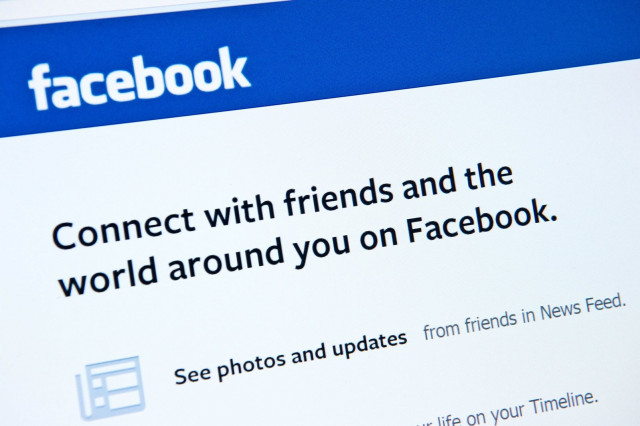Facebook dives deep into news with publisher deal
The long-anticipated move by Facebook means it will host news items on its servers to give readers faster access

This January 30, 2014 file photo taken in Washington,DC, shows the splash page for the social media internet site Facebook. PHOTO: AFP
The long-anticipated move by Facebook means it will host news items on its servers to give readers faster access.
The plan has been hotly debated in the news industry - by those who argue it can help struggling media groups, and others who say news organisations will lose control of their content to the social network.
The new feature called Instant Articles "makes the reading experience as much as ten times faster than standard mobile web articles," Facebook said in a blog post on its website.
Sharing articles on Facebook's mobile app is growing but the average article takes about eight second to load, according to Facebook.
The nine partners in the launch are The New York Times, National Geographic, BuzzFeed, NBC, The Atlantic, The Guardian, BBC News, Spiegel and Bild, Facebook said.
Read: Facebook not an information bubble, say researchers
Facebook said publishers will be able to sell advertisements in the articles and keep the revenue or use Facebook's ad network. Publishers will also be able to track traffic and other data of their content hosted by the social network.
Instant Articles will initially be available on the Facebook app for iPhone, but Facebook is working to expand the platform.
"As a lover of journalism, storytelling and mobile, I have high hopes for the positive impact Instant Articles will have on how we read, and share, the news," Facebook's news partnerships manager Liz Heron said of the plan.
A recent Pew Research Center report found some 30 per cent of Americans get at least some of their news from Facebook.
But media groups have been struggling with the shift to digital from print, both in terms of delivering relevant articles to readers and in getting ad revenue from their online services.
Some in the news industry argue the plan gives Facebook too much control of the news.
"Overall I don't think it is a good idea," said Dan Kennedy, a journalism professor at Northeastern University.
Kennedy said Facebook is not transparent about how it shows users news and the site can make changes that promote or demote content, which can have a major impact on news organizations.
"When news organizations turn over a key part of their publishing platform to large corporation with its own agenda there are some real risks," Kennedy said.
New York Times media critic David Carr, who died in February, said last year that media outlets "would essentially be serfs in a kingdom that Facebook owns" under such a plan.
"I can see why these news sites are tempted by the offer, but I think they're going to regret it," said John Gruber who writes the "Daring Fireball" news blog.
Facebook's formula for structuring its news feed has long been a source of controversy, with some arguing it creates an "information bubble" that segregates readers into like-minded groups.
Read: Facebook rolls out video calls on Messenger
A study published last week by Facebook found this was not the case - that the site's members were exposed to considerable "cross-cutting" content - but some analysts said the conclusions were debatable.
Danny Sullivan, founding editor at the Search Engine Land blog, said the move opens the door for Google to make a similar news partnership that could have a major impact on the news industry.
"I worry what it means when the free and independent web is mirrored within the walled gardens of two giants, Facebook and Google," Sullivan said in a blog post.
But City University of New York journalism professor Jeff Jarvis said the Facebook move is a watershed event for news.
"This is good news for news," Jarvis said. "If news and technology can come to terms, we can begin to reinvent journalism in a distributed world with new business models."
Jarvis said Facebook's move along with Google's efforts to partner with news organisations show a path for the future of the industry.
"We in media can't do it all by ourselves anymore," he said in a blog post.
"We are no longer monopolies in control of content and distribution from top to bottom. We now live in ecosystems where we must work with others. Get used to it. Find the opportunity in it."



















COMMENTS
Comments are moderated and generally will be posted if they are on-topic and not abusive.
For more information, please see our Comments FAQ